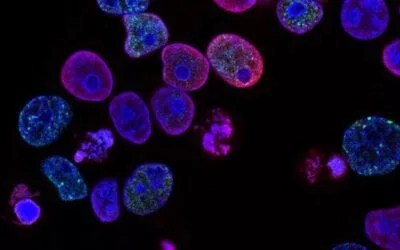Stevia means sweet Tulsi, stevia leaves contain three hundred times more sweets than sugar. Are you familiar with the medicinal properties of Stevia? if not, we’ll tell you about it. A herb called Stevia has been used for centuries to maintain human health. Stevia is considered effective in addressing certain health problems. So, today we will be telling you about Is Stevia Bad For Your Teeth?
Stevia is an Ayurvedic herb which is widely used in various types of medicines due to its effective medicinal properties. The benefits of stevia include controlling diabetes, reducing obesity, preventing allergic problems, preventing cancer symptoms, keeping heart and blood pressure healthy etc.
What is Stevia?
Stevia is a plant which is often used as a natural sweetener. The botanical name of Stevia is Stevia Rebaudiana worldwide. However, in many places, stevia is also known by different names such as sweet weed, sweet leaves and honey leaves etc.
There are about 150-300 species of stevia plant. It is a perennial bush. It is the best substitute of natural sugar. Stevia is much lower in calories than other artificial sweeteners. It is 300 times more sweet than sugar. This plant is found mainly in tropical areas.
Nutritional Value of Stevia.
Stevia is mainly used as an alternative to sugar which is the best way to get natural sweetness. In addition, it contains good amount of antioxidants such as Flavonoids, Triterpene, tannins, caffeic acid, caffeinol and quercetin, etc.
It also contains fiber, protein, iron, potassium, sodium, vitamin A and C. Organic compounds present in it provide several major health benefits.
Is Stevia Safe?
Majority of people do well with this natural sweetener, but it is better to listen to your body. it’s a drug and everyone’s body can react to it differently. The benefits and potential side effects really depends upon type of consumption you prefer.
A study was conducted on 76 person (some of whom had type 1 or type 2 diabetes) to find out the long-term side effects of Stevia. As a result they did not have experience any significant side effects.(1)
Highly refined Stevia and pure glycoside is generally considered safe as recognized by FDA. FDA has not approved whole leaf of stevia or crude stevia extract for food because they feel unsafe of these unprocessed extracts.(2) However, they can be used in dietary supplements.
A 1999 study indicates that it can reduce the fertility of the male animal.(3)
Stevia does not contain fermented carbohydrates, which means it cannot metabolize with bacteria of the mouth.
The concern is that stevia extract can affect hormones as its glycoside has a similar structure of hormones such as gibberellin. However, many herbs, such as Ginkgo Biloba, also contain this natural ingredient, and it seems safe if taken in small quantities.
In studies, it can cause allergies in people those are allergic to ragweed (because they belong to the same plant family). But it has never been reported or studied in structured research.
Is Stevia Bad For Your Teeth?
The process of tooth decay begins when these two factors are present: bacteria already present in your mouth and fermented carbs such as sugars and starch. When both of them are mixed, bacteria metabolize carbs in organic acids, which in turn begin to erode the enamel of the teeth.

Stevia can be 300 times more sweet than normal table sugar, but that doesn’t mean it’s 300 times stronger in terms of poor dental health. It’s exactly the opposite!
It does not contain fermented carbohydrates, which means it cannot metabolize with mouth bacteria. The Journal of Carries Research published a study that concluded that stevia is considered non-acidogenic, mean it supports dental health.(4) In addition, stevia does not produce lactic acid which is not good for your teeth and causes cavity and tooth decay.
Types of Stevia.
When it comes to the options available today, it’s important to know that not all stevia are made from the same. In fact, concerns have been raised in recent years about fake stevia, or products with unwanted ingredients, which is one of the reason why the FDA does not approve all stevia in a safe form.
However, we will explain three main categories, including green leaf stevia, stevia extract and converted stevia mixture.
The green leaf is the least processed form of stevia. The leaves are dried and poured into the ground in powder form. It is a type that has been used as a natural sweetener and also used in many treatment in South America and Japan.
Green leaf stevia is only 10-15 times sweeter than normal sugar. This unprocessed form has a likely combination of steviosides and ribosides.
Second, you have purified stevia extracts which is a natural sweetener in the U.S.
As per FDA standards in 2008, these extracts must contain 95% or more pure rebaudioside A glycosides and it may not contain other forms of stevioside. While pure stevia extracts are more processed than green leaf stevia, their health benefits are greater.
The least healthy option is the Stevia blend. Some companies use processes to make these mixtures, involving chemical solvents, like acetonitrile, which is toxic to the central nervous system.
Many pure stevia extracts and converted blends are described as 200-400 times sweeter than sugar.
Health Benefits of Stevia.
A number of studies available at PubMed by the National Institute of Health (589 Stevia studies are accurate as well as this number are constantly increasing), evaluating the characteristics, development and health impact of stevia. The plant has medicinal properties that lend to its incredible health benefits.
1 Stevia for Diabetics.
Using stevia instead of white sugar can be of great help to diabetics, who need to avoid traditional sugar as much as possible on the diabetes diet plan – but, they should not even get chemical, unhealthy sweeteners.

An article published in the Journal of Dietary Supplements evaluated how it affects diabetic mice. It turned out that mice treated with 250 and 500 mg every day “significantly” drastically reduced blood sugar levels and balanced insulin resistance, triglycerides and alkaline phosphate (which can be raised in cancer patients).(5)
Another study of male and female human subjects found that blood sugar and insulin levels are reduced after meals while taking stevia before meals, and remains unaffected by other decreases in calorie consumption. This research shows how it can help with glucose regulation.
| Read Now: How To Prepare Ginger Tea For Diabetes? |
2 Stevia Improves Cholesterol Levels.
The results of a study showed that stevia extracts had a “positive and encouraging effect” on the overall cholesterol profile.

It is important to note that the researchers also found that there were no adverse stevia side effects on the health condition of the subjects involved in this study.
The researchers concluded that increasing good HDL cholesterol effectively reduced levels of advanced serum cholesterol, including triglycerides and LDL (“bad cholesterol”).
3 Stevia for Cancer.
Nutrition and cancer highlighted a powerful laboratory study that was linked to stevia consumption for the first time in breast cancer reduction.
It was observed that stevioside cancer increases apoptosis (cell death) and reduces certain stress pathways in the body that contribute to the development of cancer.

4 Stevia for Weight Loss.
Sugar intake has been shown to contribute an average of more than 13 per cent of the total sugars in the American Diet each day. This high sugar intake has been linked to weight gain and adverse effects on blood sugar, two things that can have a serious negative impact on health.

Stevia is a plant-based, zero-calorie sweetener. If you opt to replace health-hazardous table sugar with high-quality stevia extracts and use it in moderation, it can not only help to reduce your overall daily sugar intake, but also increase your calorie intake.
It is also very popular for keto diets like stevia low-carb diet. By keeping your sugar and calorie intake in a healthy range, you can also get help to relieve obesity as well as overcome many health problems associated with obesity, such as diabetes and metabolic syndrome.
5 Stevia for High Blood Pressure.

Some glycosides in stevia extracts have been found to dilute blood vessels and increase sodium excretion, two things that are very helpful in keeping blood pressure at a healthy level.
Evaluating two long-term studies (a length of one and two years respectively), it gives hope that it can be effective to reduce blood pressure in high blood pressure patients. However, data from the short study (one to three months) did not support these findings.
Organic Stevia Vs Non Organic Stevia.
Organic Stevia.
- Made from organically developed stevia.
- No glycemic effects.
- Naturally Gluten Free.
Some aren’t truly pure stevia, so if you’re looking for a 100 per cent stevia product, you should always read the label.
Non Organic Stevia.
- Do not have to make from systematically grown stevia, which means it can be delivered with pesticides or other chemicals.
- There is currently no genetically modified cultivation of stevia in the world
- No glycemic effects
- Naturally Gluten Free
- As with non-organic brands, it is very important to look at additional ingredients, such as erythritol, inulin or any other ingredient.
Artificial Sweetener Vs Stevia.
Why replace sugar with something? Is sugar bad for you? Yes, it absolutely is! Heavy sugar consumption is linked to heart disease, non-alcoholic fatty liver disease, type 2 diabetes and even cancer. Just one teaspoon of traditional table sugar contains 16 calories and 4.2 grams of sugar.
Unfortunately, many people turn to the number of unhealthy non-nutrient (any calories) artificial sweeteners to defeat sugar addiction. Some of them are utterly dangerous,
Most artificial sweeteners are related to the same health effects as sugar. For example, aspartame (found in most diet soda and many “sugar-free” foods).
Associated with a higher rosk of heart disease, high body mass index (BMI), higher cancer risk, diabetes, central ability. Nervous system disruption, mood disorders, fibromyalgia, premature menstruation, autism rates and kidney disease.
Another popular artificial sweetener, Sucralose, has been presented by many as a healthy alternative to aspartame since its acceptance in the 1990s. However, there are reports that sucralose can also be problematic, especially since the body metabolizes it differently than most artificial sweeteners. It is also a mutant gene substance, which means it can interfere with DNA in certain concentrations.
Sucralose has been considered safe while you cook it with high-flame, but in 2013 a report reviewing the safety of this substance found that it produces chloropropene when cooked in high heat, possibly considered environmental pollution and toxic substances. In addition, sucralose interferes with insulin levels, which should not be the case for non-nutritive sweeteners.
To avoid artificial sweeteners, many people choose sweet objects with sugar alcohol, such as erythritol, xylitol, mannitol and sorbitol. Although these are not similar to artificial sweeteners in their composition and, in fact, do not cause spikes in blood sugar such as table sugar, they are associated with side effects such as bloating, diarrhea, gas.
While we still recommend any sweetener in moderation, it is clear why we are not advised to take traditional sugar, sucralose, aspartame or sugar alcohol as appropriate sweeteners. For a non-calorie sweetener that benefits the body, stevia is a perfect choice.
Other Natural Sweeteners.
They contain raw honey, dates, coconut sugar, maple
Try these basic conversions the next time you replace sugar with this natural sweetener:
1 teaspoon sugar = 1/2 packet or 1/8 teaspoon powdered stevia = 5 drops liquid
1 tablespoon sugar = 1.5 packets or 1/3 teaspoon powdered stevia = 15 drops liquid stevia
1 cup sugar = 24 packets or 2 teaspoons powdered stevia = 2 teaspoons liquid stevia
| Read Now: Chinen Salt for Diabetes |
How Much Stevia Can I Consume Every Day?
The acceptable daily intake (ADI) of stevioside is 5 mg per kilogram of body weight each day, and 4 mg per kilogram of rebaudioside per body weight. When using it, it is best to stay on or below this amount. Stevia rebaudioside last approximately 1/2 of the total weight of the pure product.
Using this math, the ADI of FDA-approved pure extract each day comes at 12 mg per kilogram of body weight.
If you’re using green leaf stevia powder, the number is slightly higher, some countries like although America has not approved it for use in food.
Side Effects of Stevia.
Usually some side effects appear with stevia, although it can theoretically cause oral allergies in people with ragweed allergies as they are from the same family and have similar molecular structures.
No reports of such allergies have been reported for the best cases of research, and no research studies have been conducted to test this potential issue.
Signs of an oral allergic reaction include swelling of the lips, mouth, tongue and throat, itching, abdominal pain, nausea, vomiting and tingling itching in the mouth and throat. If this happens, stop consumption and pay attention to therapy if the symptoms are severe.
According to extensive research available, stevia is not mutagenic or carcinogenic (like other artificial sweeteners).
In the past, it has been approached with caution for pregnant and lactating women. However, there have been several studies in animals to see if fertility or birth results change with stevia supplements?
Frequently Asked Questions.
No. Stevia has not shown any main aspect of fasting to break. It is a natural sugar-free sweetener that actually contributes to better blood sugar and insulin levels. Also, it does not limit your body’s ability to break fat or stay in the state of ketosis. It means that, for the purpose of fat loss, including stevia in your food will not break your fast.
Stevia in a limited amount is suitable for dogs but excessive use can lead to diarrhea.
Bottom Line.
Stevia is a non-calorie sweetener unlike many other sweeteners, is associated with many health benefits and not bad for your teeth with few side effects. Depending on your body weight, you can take up to 3.5-9 teaspoons each day to stay within the FDA’s acceptable daily intake (ADI) of the pure version.
100 times more volume has been tested in animals with no negative results. However, in India, it is not readily available in the market, nor is it not much cultivated. However, it is also readily available in the several online market.
+5 Sources
Freaktofit has strict sourcing guidelines and relies on peer-reviewed studies, educational research institutes, and medical organizations. We avoid using tertiary references. You can learn more about how we ensure our content is accurate and up-to-date by reading our editorial policy.
- Effects of stevia on glycemic and lipid profile of type 2 diabetic patients: A randomized controlled trial; https://www.ncbi.nlm.nih.gov/pmc/articles/PMC7103435/
- GRAS Exemption Claim for Stevia Leaf Extracts; https://www.fda.gov/media/119340/download
- Effects of chronic administration of Stevia rebaudiana on fertility in rats; https://pubmed.ncbi.nlm.nih.gov/10619379/
- Sugar Substitutes: Mechanism, Availability, Current Use and Safety Concerns-An Update; https://www.ncbi.nlm.nih.gov/pmc/articles/PMC6236052/
- Antidiabetic Potential of Medicinal Plants and Their Active Components; https://www.ncbi.nlm.nih.gov/pmc/articles/PMC6843349/









































 Workout
Workout

 Meditation
Meditation






 Podcast
Podcast
 E-book
E-book














